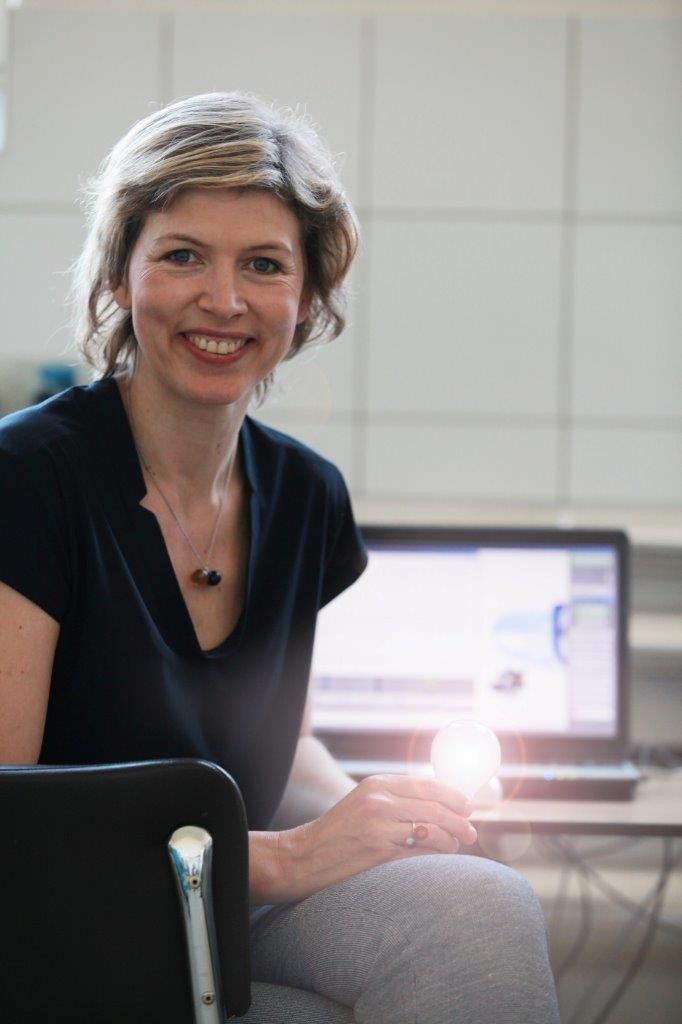
“Food should be tasty, healthy and sustainably produced.” Veerle Rijckaert, Business Development Manager with Flanders’ FOOD, sets high standards. “Belgian food is among the best in the world,” she says. “But to stay ahead of the pack we need to improve the quality and sustainability of our food products constantly. And we need to come up with new and even better products. In other words: innovation is key. Luckily, Belgium has developed a unique concept to help companies do exactly that. With Flanders’ FOOD, an innovation network for the food industry, we are a pioneer in linking food producers to academic expertise.”
There is a direct relationship between our eating habits and our health. Good, healthy food makes many of our troubles disappear. Poor eating habits on the other hand are linked with health risks which can’t be ignored, such as obesity, cardiovascular diseases and diabetes. Veerle Rijckaert sums up the challenges. “Eating good quality and balanced food has positive effect on many aspects of our lives. First and foremost, it would help us to stop burden ourselves, our families and social security with long-lasting diseases and ailments. Moreover, it would help to use the resources of our planet in a more sustainable way. If you ask me these are two compelling reasons why it’s so important to tap into our creativity and our ability to innovate.”

A unique innovation model
The Belgian food industry developed a unique model to support innovation, especially towards SME’s in the food industry. According to Veerle Rijckaert Flanders’ FOOD offers food companies easy access to a range of innovation facilities and knowledge. This is especially relevant for smaller ones that don’t have big budgets for research and development.
“Nowhere else will you find an innovation network model like Flanders’ FOOD, linking food producers to academic expertise. In collaboration with knowledge institutions we try to improve companies’ scientific and technological knowledge in order to increase their innovative strength. We encourage universities and research centres to perform far-reaching research on concrete products and subjects. Sometimes it works the other way around: universities introduce ideas to companies. In that way they discover what’s often hidden today: nutrients for humans in all that lives on earth. The Flanders’ FOOD network is the link between food companies on the one hand and the research centres on the other hand. Which allows us to support companies quickly and efficiently. In the end this network model should contribute to a more competitive, innovative and sustainable food industry.”
Fancy another worm?
Imagine a waiter bending over your plate with a steamy tray of insects. “Would you fancy another worm?” It is not easy to convince the consumer to take you up on that offer. But let’s not focus too much on the image of a tray of insects. Food producers need to have a more rational take on the potential of insects. Flanders’ FOOD encourages their quest for alternatives for proteins in insects, algae and lupines. Entrepreneurs today are beginning to realize the business potential and start to breed insects on a large scale. Why not? Crickets for instance contain as much proteins as meat. For the moment there are 2000 edible insects and according to Veerle Rijckaert there will be more soon.
“In the field of edible insects Belgium is a pioneer as well. The Federal Agency for the Safety of the Food Chain (FASFC) drew up a list of insects fit for human consumption. But we want more research to be done on the breeding and product development of mealworms for instance. As soon as the list of novel food is extended, Belgian companies will come up with a new range of insect-based products which will allow us to stay ahead of the pack.”

Alzheimer’s patients
Another goal of Flanders’ FOOD is to stimulate the diversity in our food supply. “One of the topics we’re working on is food products for specific target groups. You’ll find a broad range of baby food products on the supermarket shelves, but if you look at the offer for the elderly, the market is wide open. You could develop food for the elderly who have difficulties chewing and swallowing their food. Or food for people suffering from dementia or simply for the growing group of active elderly people.”
Another reason to expand our food supply is the growing number of people with food allergies or intolerances. Almost 1 to 2 % of the population suffers from gluten intolerance. This group’s intestines are constantly irritated because of the proteins in wheat. As a result of that their body hardly ingests any nutrients. These people constantly have stomach and bowel disorders and risk developing a wide range of other symptoms as a result of a shortage of nutrients and vitamins. In that case you might even develop intestine cancer in the long term, if you don’t choose to start a gluten-free diet. The solution according to Veerle Rijckaert? Focus on new products! “The range of tasty, gluten-free products is simply too limited right now. Often the industry itself points that out to us. Don’t forget that there is a large group of gluten sensitive consumers: people who don’t suffer of irritated bowels but who still somehow react to gluten. A wider range of gluten-free products would most certainly be welcome for these consumers.”
Stevia or sugar?
It’s clear that for Flanders’ FOOD the quest for new, tasty and healthy nutrients should never stop. There are more than enough healthy alternatives on our blue planet, but according to Veerle Rijckaert none of them is a panacea. Also the sweetener stevia isn’t. “The advantage of stevia is that you need much less of the compound steviol glycoside to obtain the same sweetness as sugar. But the advantage is also a disadvantage: the product lacks volume, so you have to balance it in another way. And it takes a lot of time and resources to figure that all out.”
But there are worse things than that. Flanders’ FOOD hopes for a healthy balance. “Sugar will not suddenly disappear from the face of the earth because of the stevia hype. Let’s not forget that sugar, like bread and potatoes, contains glucose, our brain’s primary fuel.”
Pilot factory
Interesting studies are one thing, the proof of the pudding is always in the eating. Therefore Flanders’ FOOD set up an application and analysis centre in collaboration with the Institute for Agricultural and Fisheries Research (ILVO). The Food Pilot allows companies to have the taste of new products analysed and tested. The centre deepens Flanders’ FOOD’s mission: offer Belgian food companies the opportunity to innovate. “We especially want to give small companies’ efficiency a boost by supporting them in the research phase. It’s of the utmost importance that our industry brings balanced products to market: products with the exact fat profile, with not too much sugar, enough minerals, vitamins, antioxidants and fibres. But above all, for our success to continue, our Belgian products should be really, really tasty!”
More information on www.flandersfood.com

